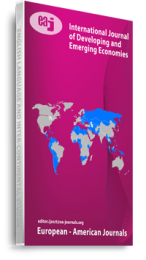This study is a response to the under-performing trend in the non-oil sector of Nigeria which is supposedly a catalyst for massive industrialization and rapid development concerns in a less developed country such as Nigeria. Arguments bordering on the perceived plausibility of trade liberalization and government incentives vis-à-vis non-oil export performance were empirically tested using contemporary econometric techniques of unit root test, co-integration test and error-correction mechanism. Results from the tests conducted revealed a one year positive lag relationship between variables such as foreign private investment, exchange rate, gross domestic product and non-oil export growth. Contrary to theoretical expectation, an inverse relationship was found to exist between a one year lag in agricultural credit guarantee scheme fund and non-oil export performance while, world gross domestic product exerted no significant relationship with non-oil export growth in Nigeria. However, the error correction model revealed a slow speed of dynamic adjustment from short-run to long-run equilibrium and as such, the study recommended among others, a re-examination of the agricultural credit guarantee scheme fund to ensure a positive contribution to non-oil sector development, increasing incentives that stimulate non-oil investment and also maintaining a favourable exchange rate. These policies, if implemented, will assist in unlocking the existing potentials in the Nigerian non-oil sector.
Keywords: Incentives, Non-Oil Exports, economic growth, openness

